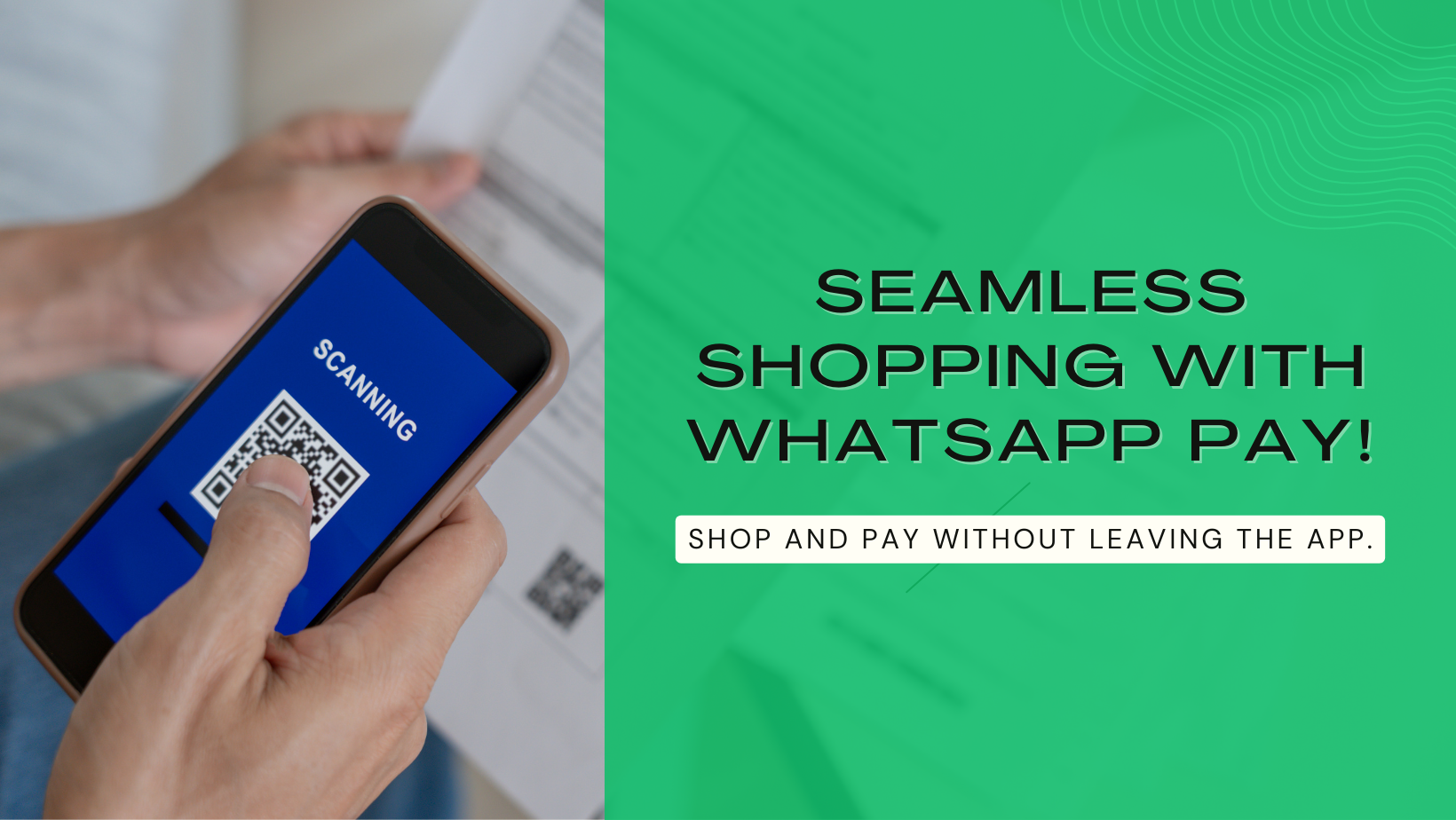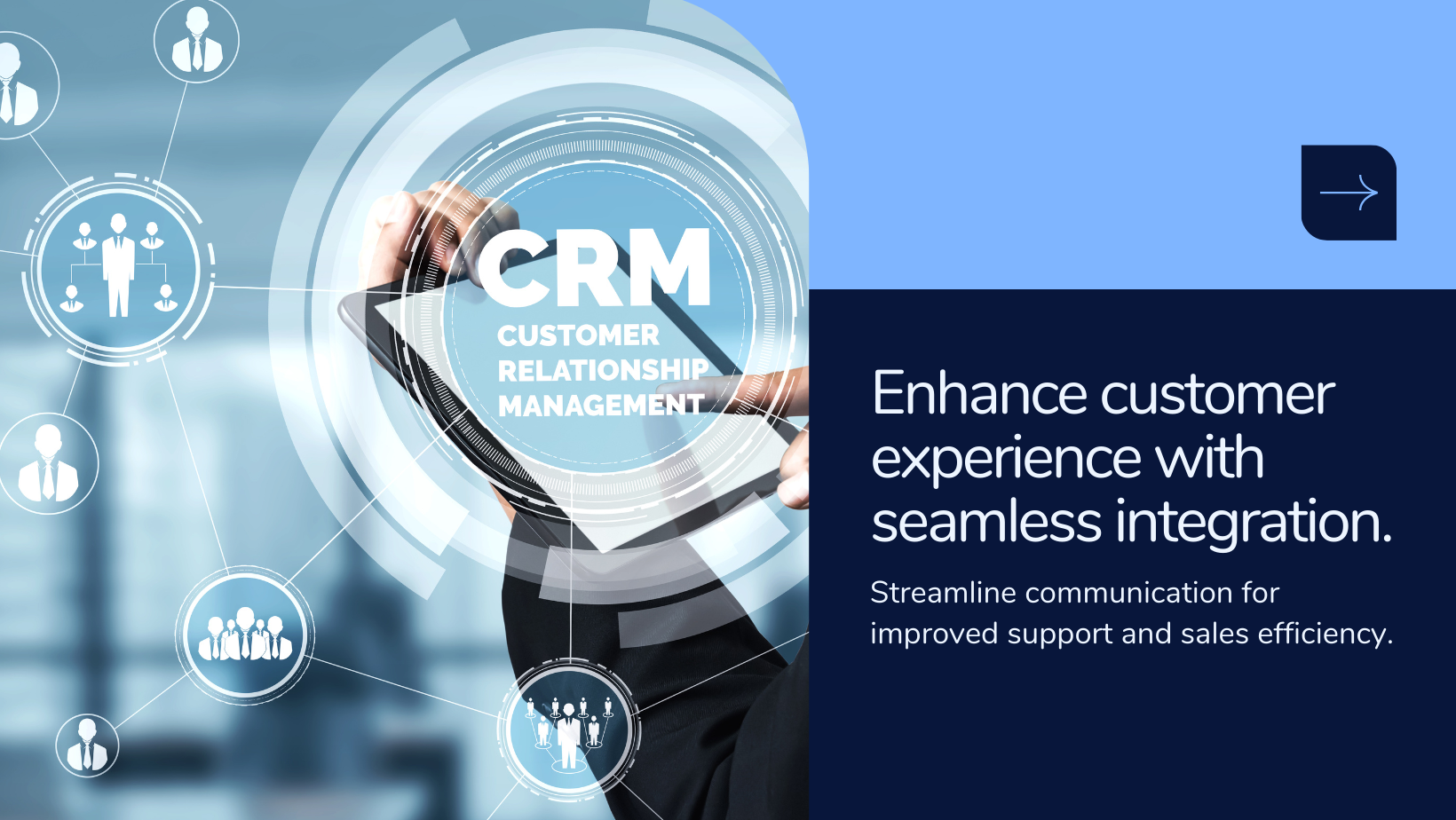Elevating Sales with HyperInventory's Related Products
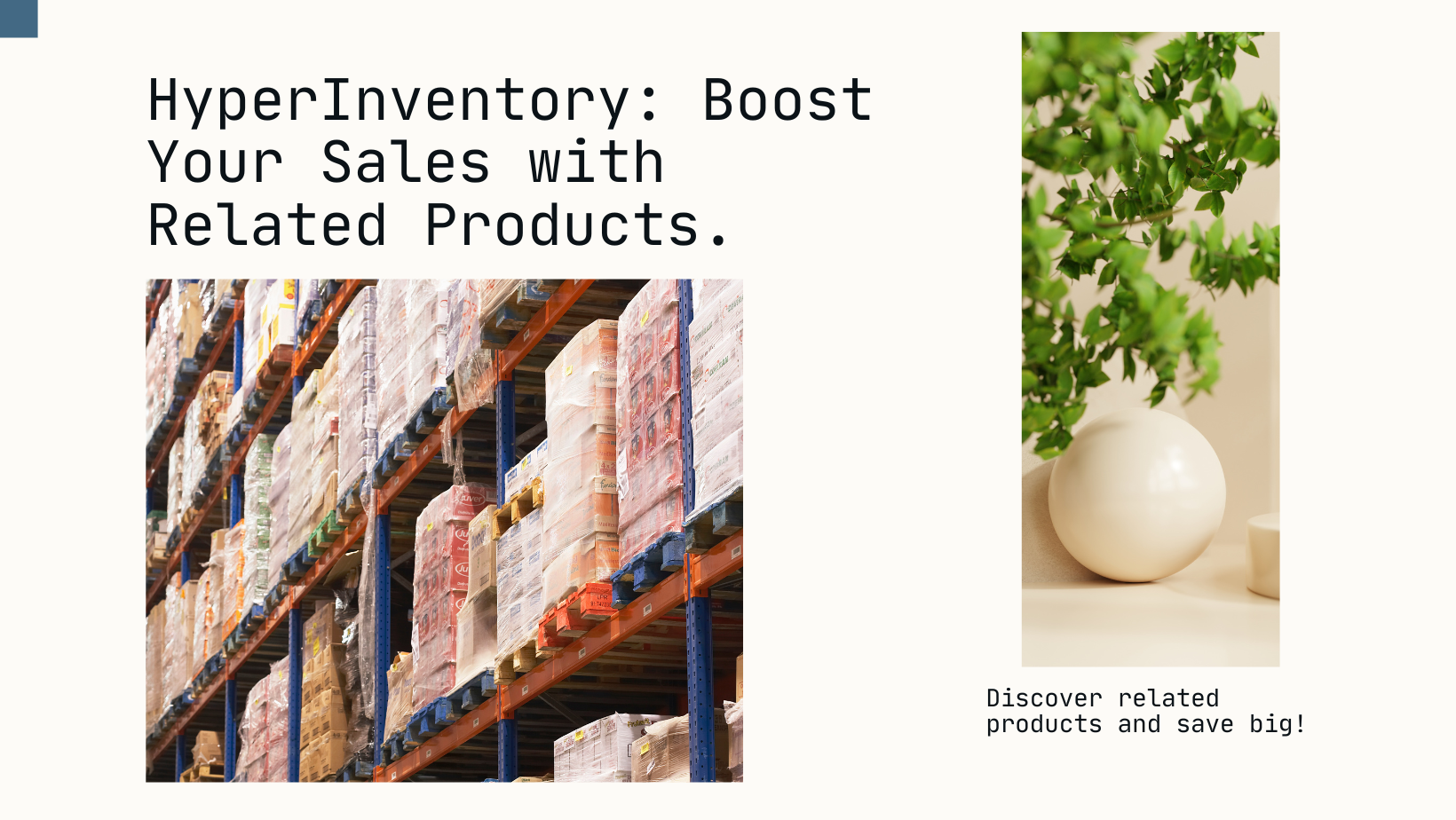
There is a lot more to offer in the e-commerce experience than just offering items for sale. It is about providing clients with a personalised experience, giving them relevant options with respect to what they initially choose, and making recommendations for other solutions that fit their interests. This is when the 'Related Products' feature becomes useful.
Using various operations such as 'Frequently Bought Together', 'Similar Products', 'Sponsored Products' and 'Product Accessories', businesses can turn their online shops into dynamic environments that promote exploration, ease of use, and higher sales.
So, in this blog we will have a look at how this Related Products feature help business and how it will be implemented using Hyper Inventory.
Various type of Operations used in Related Products are as follows:
- Frequently Bought Together:
It refers to the vital feature of an online shopping platform which suggest the product to the customer which is supportive to the main product bought by the customer. This suggestions will help businesses in increment of their sales by offering an item related to the main product. Identifying products that are frequently bought in combination aids in more efficient inventory management.
E.g. While buying a smart phone the buyer will get a recommendation for buying the cover for that exact smart phone. - Similar Products:
Products that are similar to one another in terms of characteristics or uses are called similar products. These goods fulfil comparable requirements, have comparable features, or perform comparable tasks. The similarities can range from specifications to design features, satisfying a customer's wants or preferences in a well-known area. These products act as a substitute for each other for particular need and service. It helps customers explore alternatives that align closely with their initial choice, providing them with options that suit their preferences. - Sponsored Products:
A sponsored product refers to a product that a company or advertiser pays to promote within a platform. It's like saying, "Hey, check out this product!" when people search or buy things. The brand or you can pick which product to promote. It's a way to get more attention for that specific item in order to increase the sale of that product. - Product Accessories:
Product Accessories are accessories that add value or utility to the primary product. These accessories are designed to be used in conjunction with the primary product and are often seen as essential or useful by users. These accessories are paired with the main product which help to improve their functioning.
In this blog, we will explore how this feature will be availed by using Hyper Inventory.
Steps that need to be followed while using this feature of Hyper Inventory is as follows:
- Go to Products option on the top bar and go to the product listing sections.

2. Click on the product where you want to add related products to that specific main product.
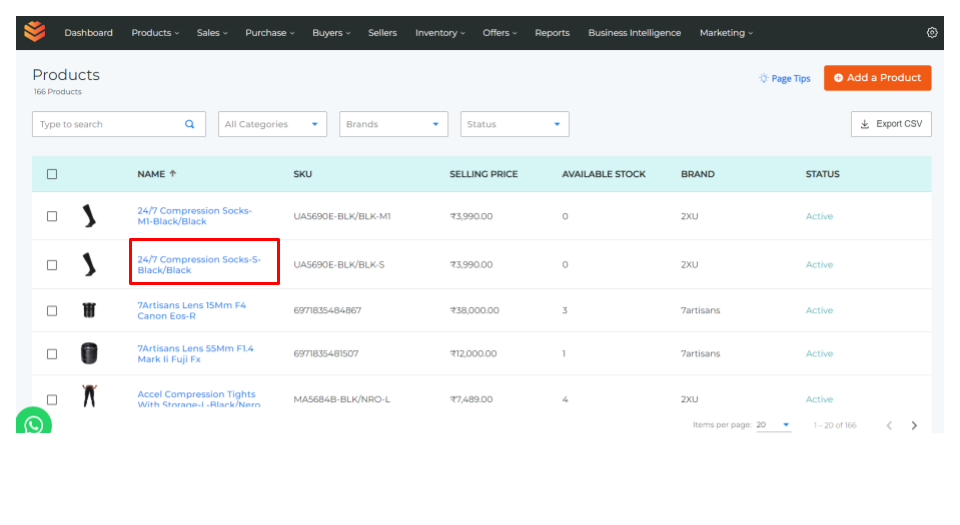
3. Click on the related products section.
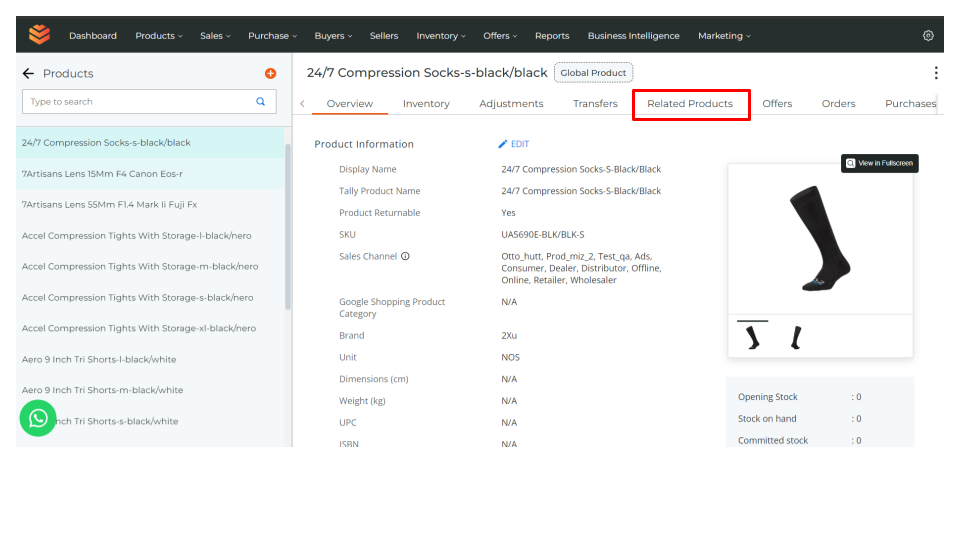
4. Here, we will get all the fours options to add along with that of the product one-by-one.

5. To 'Assign frequently bought together Products' we can add product which is supportive to the main product bought by the customer. Click checkbox infront of the product and submit.
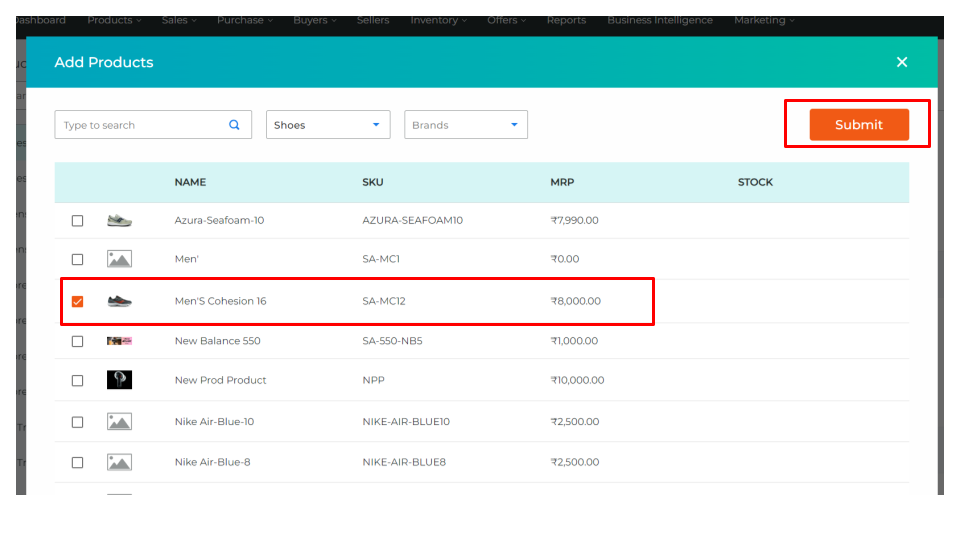
6. To Assign Similar Products, we can add product which fulfil the similar kind of purpose. These product/s are displayed as secondary choice for the customer.
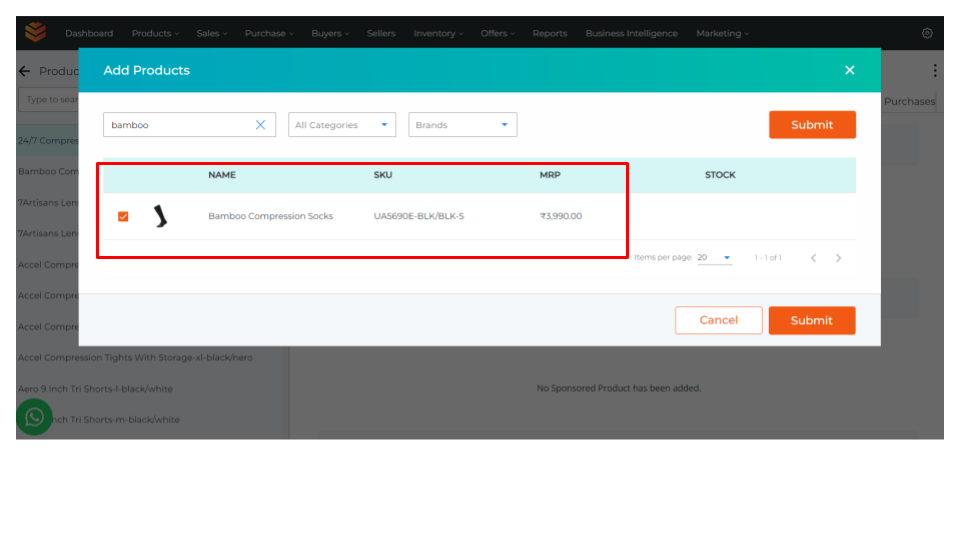
7. To Assign Sponsored Product, we can select the product which we want to advertise .
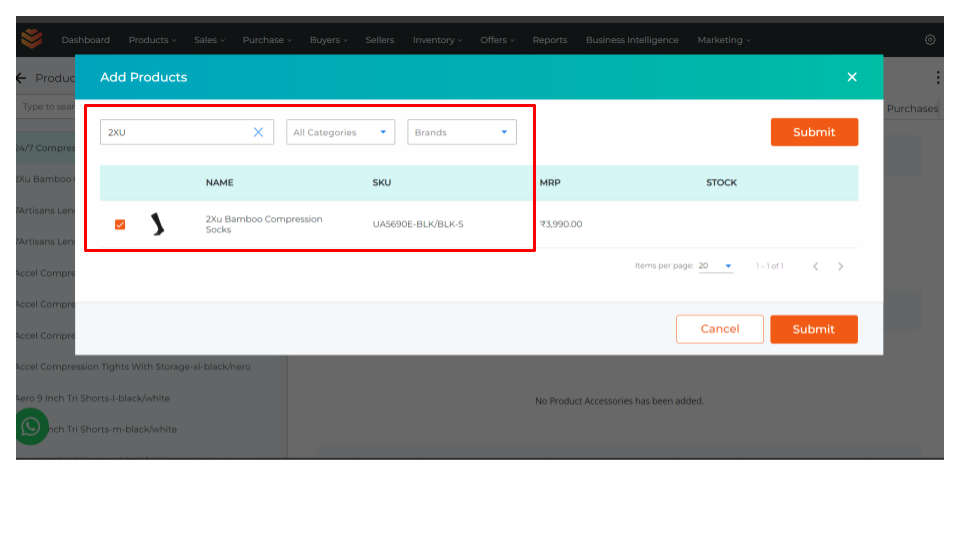
8. To assign Product Accessories, you can add product which are related to main product which help them to increase their functionalities.
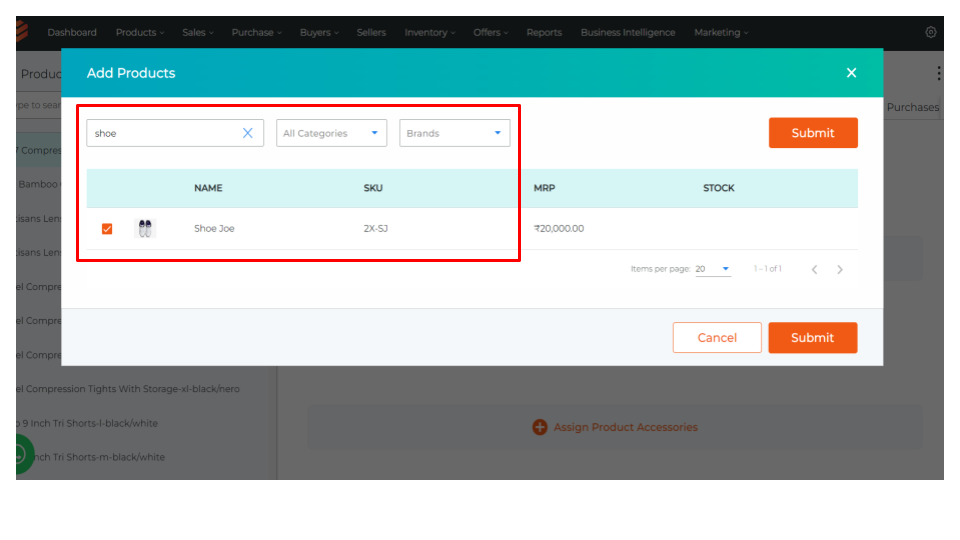
Important Points to Remember:
You can arrange the products based on your preference, whether you want to recommend it first, second, or in any other order. Just click and drag the items as you wish and align accordingly.
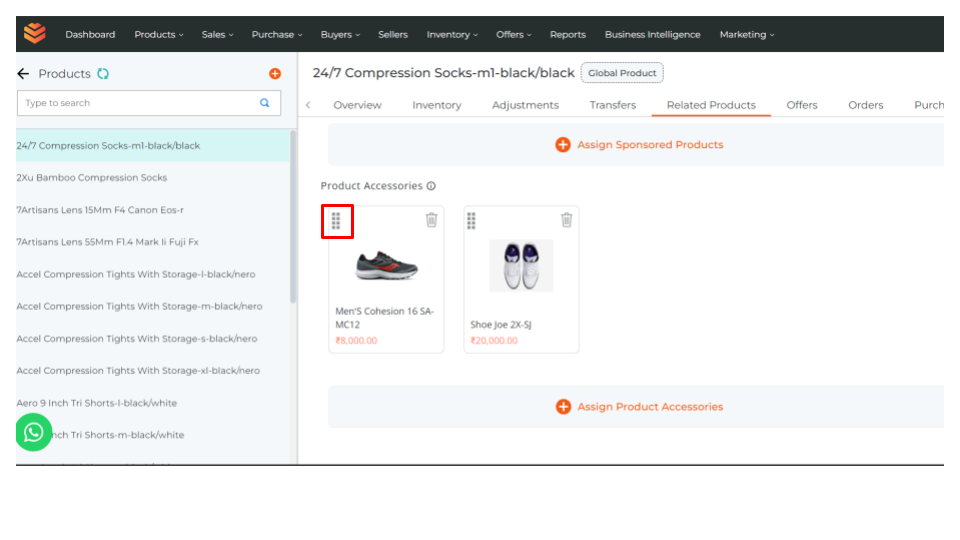
You can rearrange the product order by using the six dots available and observe the changes in the product arrangement.
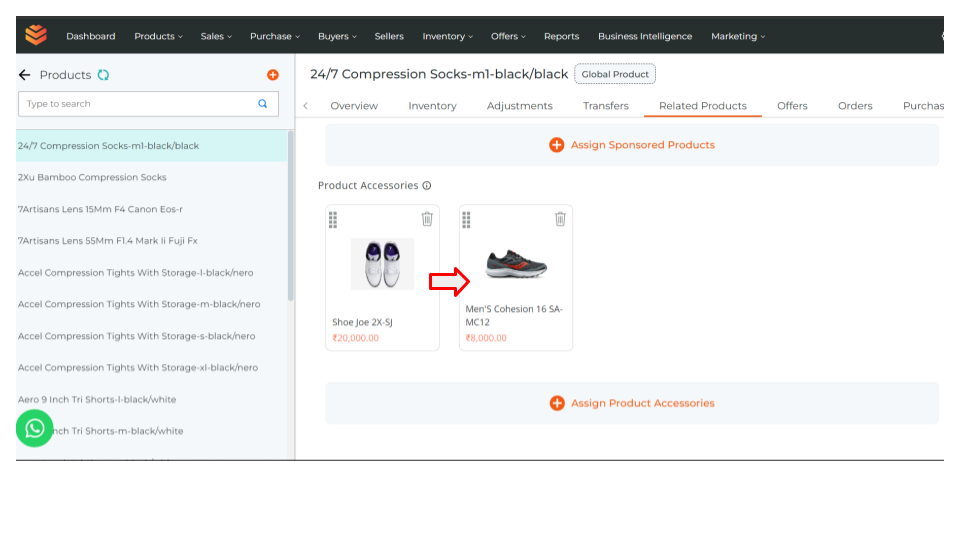
By implementing, these strategy of combination of related products, businesses will encourage customers to explore, facilitate convenience, and help to drive sale smoothly.
Key Benefits of using HyperInventory for managing Related Products:
- Personalized Shopping Experience: By recommending related products such as frequently bought together items, similar products, sponsored products, and product accessories, businesses can create a personalized shopping experience for customers. This helps customers discover additional products that align with their interests and preferences, increasing their satisfaction and likelihood of making a purchase.
- Increased Sales Opportunities: Recommending related products allows businesses to cross-sell and upsell to customers, presenting them with complementary or alternative options that they may not have considered otherwise. This can lead to increased order value and revenue for the business, as customers are encouraged to add more items to their cart.
- Improved Customer Engagement: Offering related products helps keep customers engaged and interested in exploring the product catalog further. By presenting relevant and enticing options, businesses can capture the attention of customers and encourage them to continue browsing and discovering new products, ultimately leading to higher levels of engagement and interaction with the website.
- Efficient Inventory Management: Identifying frequently bought together items and similar products enables businesses to optimize their inventory management practices. By understanding which products are often purchased together, businesses can adjust their stocking levels and purchasing strategies to meet demand more effectively, minimizing stockouts and excess inventory.
- Enhanced Product Visibility: Promoting related products, especially sponsored products, can increase their visibility and exposure to customers. By featuring these products prominently on the website or within search results, businesses can attract more attention to them and drive traffic and sales, ultimately boosting their overall performance.
- Strategic Marketing Opportunities: Recommending related products allows businesses to implement strategic marketing tactics, such as cross-promotions and targeted advertising. By promoting sponsored products or product accessories, businesses can increase brand visibility and encourage customers to explore additional offerings, thereby strengthening brand loyalty and driving repeat purchases.
- Simplified Product Management: HyperInventory provides businesses with a user-friendly interface for managing related products, making it easy to add, edit, and organize product recommendations. With intuitive tools and features, businesses can quickly update related product listings and optimize their recommendations to align with customer preferences and market trends.
- Flexibility and Customization: Businesses have the flexibility to customize their approach to recommending related products based on their specific goals and target audience. Whether it's highlighting frequently bought together items, showcasing similar products, or promoting sponsored products, businesses can tailor their recommendations to maximize engagement and conversion rates.
- Data-Driven Insights: HyperInventory may offer data and analytics tools that provide businesses with valuable insights into customer behavior and purchasing patterns. By analyzing which related products perform well and drive the most sales, businesses can refine their product recommendations and marketing strategies to better meet customer needs and preferences over time.
In conclusion, leveraging HyperInventory for managing related products enables e-commerce businesses to enhance the shopping experience, increase sales opportunities, and optimize inventory management practices. By strategically recommending related products, businesses can drive customer engagement, loyalty, and revenue, ultimately contributing to long-term success in the competitive e-commerce landscape.


